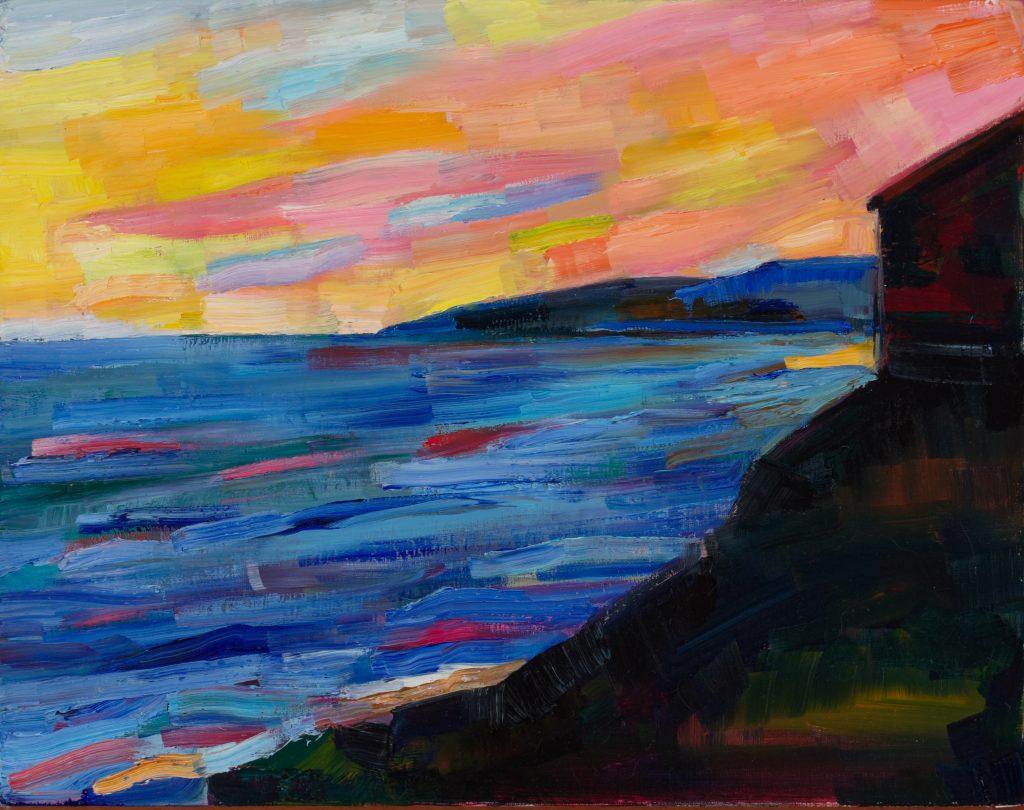Chapter 1. The sonnet
Shakespeare writes in Sonnet 73:
In me thou see'st the twilight of such day,
As after sunset fadeth in the west,
Which by-and-by black night doth take away,
Death's second self, that seals up all in rest.
For me, painting the sonnets brings into a sharp focus how natural phenomena — what we see “out there” — help us make sense of the human experience.
And this inner process of making sense (which might just be the very essence of human experience) becomes visible in sonnets.
Here, it is twilight: this special time when we still see the light in the sky, even though the sun is already (temporarily) invisible. The day is already in the past, but its light is still present…
(I am writing this in Florence, which is still lit by the light of the Renaissance, even if the Renaissance is in the past).
And inevitable black night — “death’s second self”… but if this is death’s second self, then what is death but this temporary, transient invisibility — which turns into day as inevitably as the day turns into night?

In this sonnet painting, this metaphor, In me thou see’st the twilight, ceases being a metaphor and turns into imagery: twilight seen in (through) a human face.
I studied the colours of twilight from life to do this, sitting at the balcony of our room in a beach hotel, barely seeing what I was painting because the day was turning into the night with dizzying speed. Here are these two studies…


William Shakespeare, Sonnet 73
That time of year thou may'st in me behold
When yellow leaves, or none, or few, do hang
Upon those boughs which shake against the cold,
Bare ruin'd choirs, where late the sweet birds sang.
In me thou see'st the twilight of such day,
As after sunset fadeth in the west,
Which by-and-by black night doth take away,
Death's second self, that seals up all in rest.
In me thou see'st the glowing of such fire
That on the ashes of his youth doth lie,
As the death-bed whereon it must expire
Consum'd with that which it was nourish'd by.
This thou perceivest, which makes thy love more strong,
To love that well which thou must leave ere long.